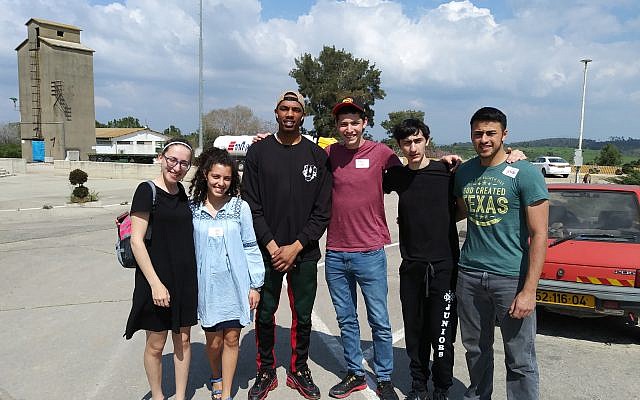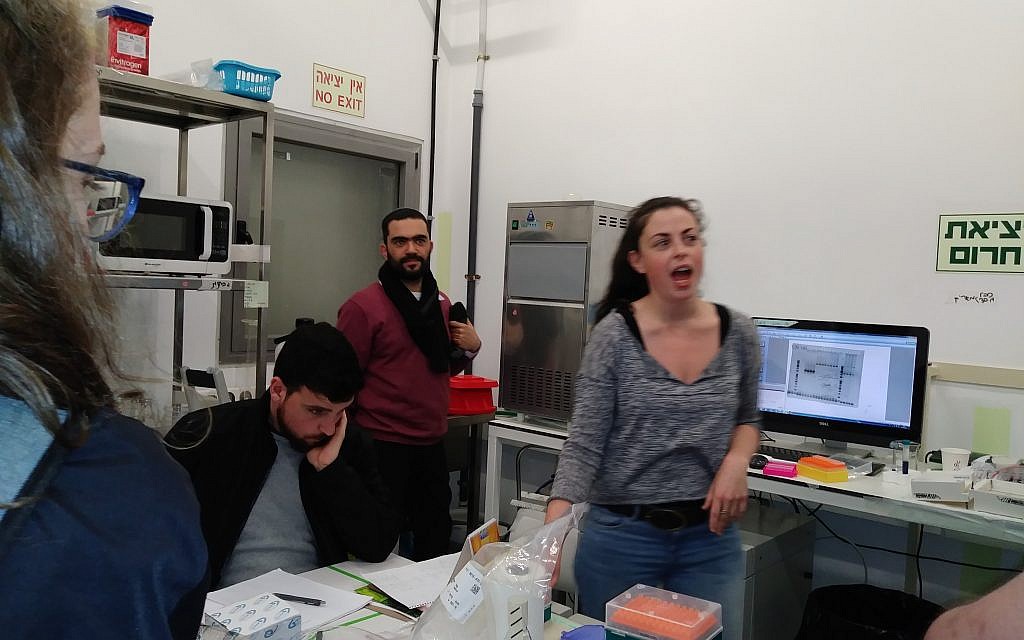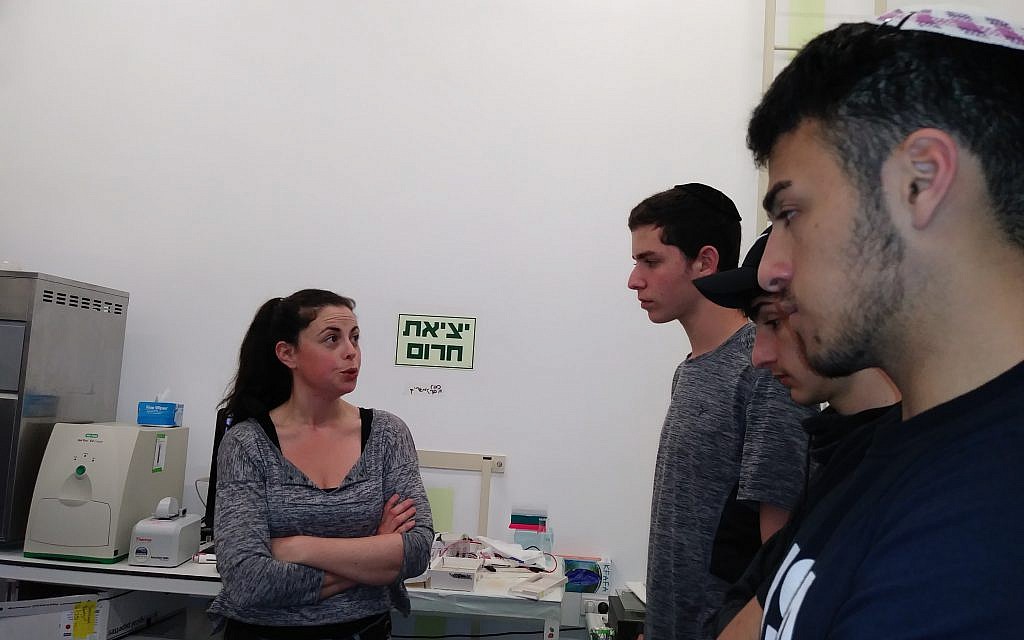Women Can Lead in Science Too
During a recent trip to Yokneam Illit in Israel, sister city to Atlanta, AJA students got glimpse of what it’s like to be a woman who leads in science.
Patrice Worthy is a contributor at the Atlanta Jewish Times.

When Zoe Socol, a 17-year-old senior at Atlanta Jewish Academy, talks about working as a biomedical engineer, her face lights up. During a recent trip to Yokneam Illit, Israel, sister city to Atlanta, Socol got glimpse of what it’s like to be a woman who leads in science. Socol’s favorite subject is AP biology and she said it was cool to see the type of environment where she could possibly work.
“I walked in and said, ‘This is a lab!’” she said describing her thoughts after entering Phytolon, a company that creates natural food coloring to make food appealing while still healthy, without artificial flavors.
Phytolon is headed by Tal Zeltzer, senior scientist, who explained to the group why it’s essential girls see positive female representation in male-dominated fields and know that they can be fulfilled working in a demanding industry.

“I can’t even say how important it is for me to see women in science and managing positions in companies because women tend to be apologetic when submitting their CVs to companies,” Zeltzer said. “Women have to be devoted and focused. You can’t let anyone tell you that you can’t do it.”
Zeltzer spends an average of nine hours a day working, but when she is in the research phase of a product, the hours are much longer. She is a wife and the mother of two children and said the best thing for her two young daughters, ages 2 and 3 1/2, is to see their mother fulfilled.
“I come home happy after spending nine hours doing what I love. I love the deadlines and the edge,” she said. “When I pick up my girls, I close the phone and don’t open it up until 7:30 or 8. Young women need to see a good example of women who lead.”

While advising the students on what it takes to form a successful startup, Shaul Avidov, head of Openvalley Academy for Entrepreneurship and Innovation, asked them to look at a slide of high-tech CEOs including Bill Gates and Steve Jobs. He asked them “What’s missing?” After each student guessed, he pointed out “women.” Avidov said women are leaders in the tech industry, but many people overlook their presence.
“People think that it’s a man’s world and it isn’t,” Avidov said. “It only seems like it’s a man’s world and I’m trying to explain to companies that it’s not.”
For Zeltzer, it’s important that men acknowledge women can be successful in a traditionally male-dominated field, and even more so at home. She said the support of her husband, who is an engineer at Intel, is essential when it comes to taking care of her home, daughters and working in the lab. Zeltzer describes the environment as “collaborative and dynamic” and also brings her children to work with her, which she said makes it easier to spend long hours in the lab.

“Men need to learn to be feminists and support the family because it’s his responsibility,” she said. “My husband is happy and satisfied. We are modern parents who support each other and the kids.”
Many people say that they don’t see women as scientists, Socol said. But she’s had her sights on becoming a scientist for so long, that for her it’s not shocking. She is aware that a job in science can be tough for a woman who wants it all, but after listening to Zeltzer, she’s convinced it can be done.
“Now that women are more innovative and prominent in the field, it’s almost normality,” Socol said. Research can be really tough with a family because you spend long hours in the lab and don’t necessarily get the results you want. But if you love it like Tal loves it, anything is possible.”



comments